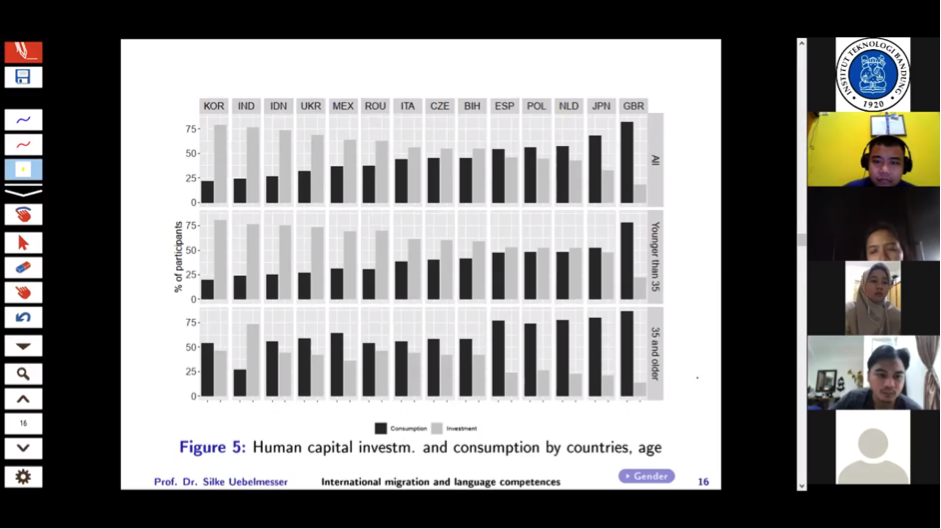The desire to learn a foreign language can be divided into two categories: investment and consumption. Learning foreign languages for investment purposes is motivated by the desire to further one’s education, negotiate with business partners, communicate with colleagues, and interact with customers.
It was stated by Prof. Silke Uebelmesser, Professor of Economics at Friedrich-Schiller-Universität Jena, when she discussed the ins and outs of learning a foreign language from a macro viewpoint, (20/4/2021).
According to the findings of the study, respondents believe that by acquiring a foreign language, they would be able to obtain a better negotiating position.
Meanwhile, in terms of consumption, interest in language is used here to interact in general (both with friends, family, and relatives), during vacations, and to gain an understanding of the culture of the country.
Prof. Silke also explained demographically that every person has motives for studying a language.”Young people under the age of 35 are more likely to be inspired to learn as an investment. Furthermore, the majority of young people are more likely to be ambitious, believing that they can improve their skills. This is done so that they can be successful in the labor market,” said the University of Munich graduate.
Whereas for the average adult over the age of 35, the desire to learn a language is driven by a desire to consume based on relationships.
From the standpoint of human resources management, the requirement for foreign language skills can be a significant impediment. A company’s decision to invest in its workers would be influenced by cost, prices, time, resources, and perseverance. On the other hand, if the organization can hire staff faster and with more skills by hiring foreign workers, then it would alleviate the pressure of time. Sending workers to study and hiring foreign workers is a conundrum, particularly for companies in need of experts for technology transfer.
At the end of her lecture, she concluded that we must prepare ourselves with good language skills. As a result, we will have a higher level of competition in the global labor market. Don’t be afraid to speak up, make mistakes, and continue to learn. Let’s keep getting better.







